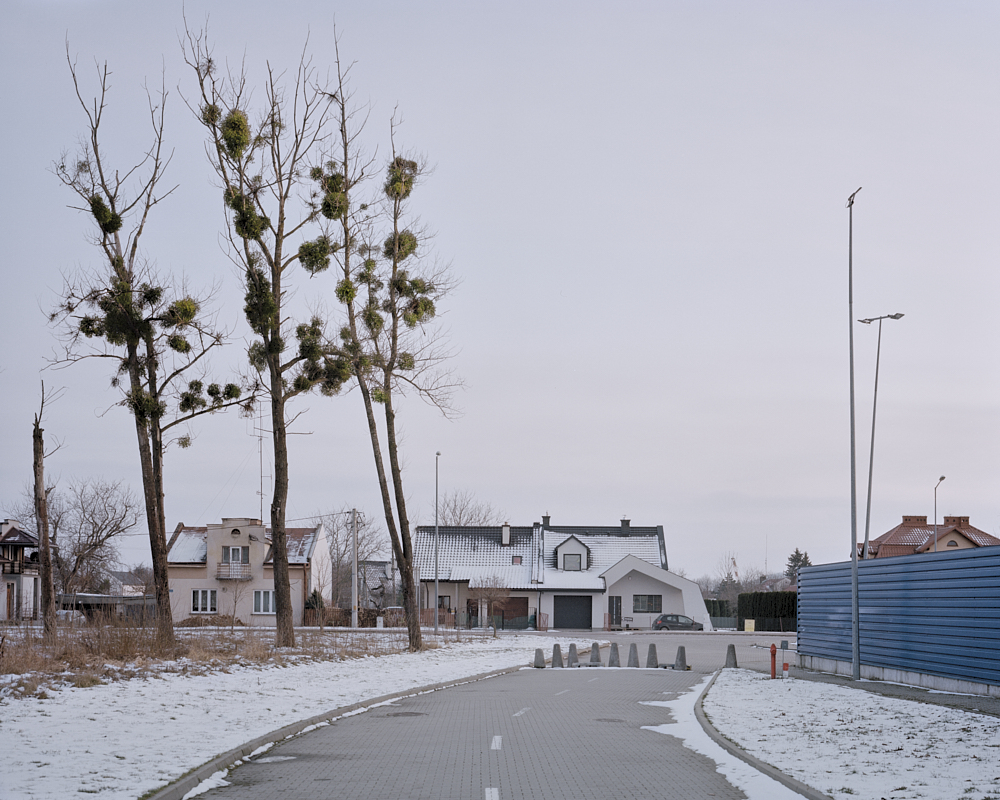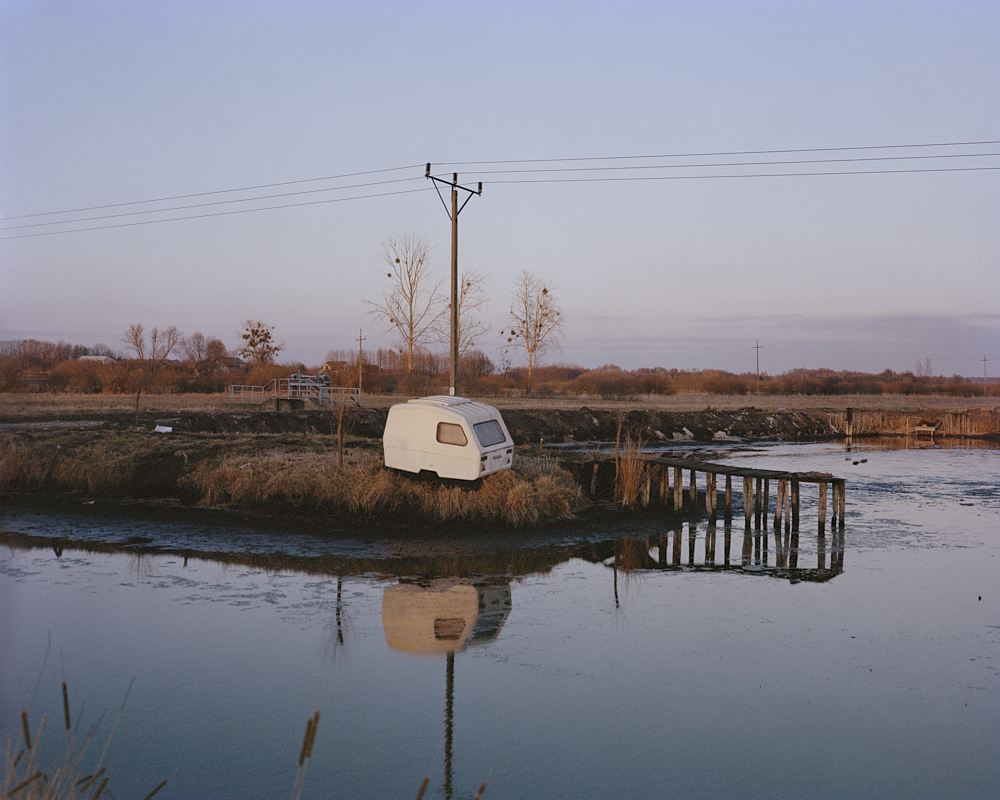Another Sunny Day
In The Midst Of This Quietness, The War Seems To Be Infinitely Far Away.

The lake is frozen and the dark ice speckled with white bubbles,
like a rather dense starry sky in the early morning.
It is going to be another sunny day.

My heart beats clearly uncomfortably.
The light comes closer and stops at me.
I hear a Hello Sir and quickly put on my shoes
to look at least
somewhat respectably.


He says it is amazing what I am doing
but unfortunately he can not allow me to do it here.
I think of all the shaking heads being disappointed in me.
I will never tell anyone about this.

Surrounded by an eerie quietness, vast flat corn fields and
a beautiful evening light I am invited for a Schnaps by a colleague
of the dead.
It is flattering how nice and inviting the people here
are.
Getting sentimental to the tension that is always present
and also somehow not, I am wondering how my perception is being
filtered here.
What does a landscape mean anymore?


The sky is always there. No matter what.


Russian radio is playing as we drive over bumpy roads and the driver bangs his fist hard on the air conditioner several times because it is broken.


Here you do not have to use a safety belt
and people drive as fast
as they want.
It feels like freedom.

Everything is quiet.
Except for an owl, a crow and three stray dogs which are calmly and
purposefully biting into thrash bags. Now and then military vehicles
are humming.
And the boxing machine.
That casually alarms with
warning sirens
into the silence.

When the war started, the diner was full of journalists and
therefore out of food.
Tragic. Only a few schnitzel were left.


As a child I liked to play war.
Not being aware of it the feeling of
power
and control intrigued me.
My friends and I were hiding
behind trees
and jumping into the ditch when a car approached,
that we imagined was a tank. A wooden branch, pointed at the car,
was my gun. Hungry and exhausted we later went home to have dinner.
I was a child and war was a fantasy.